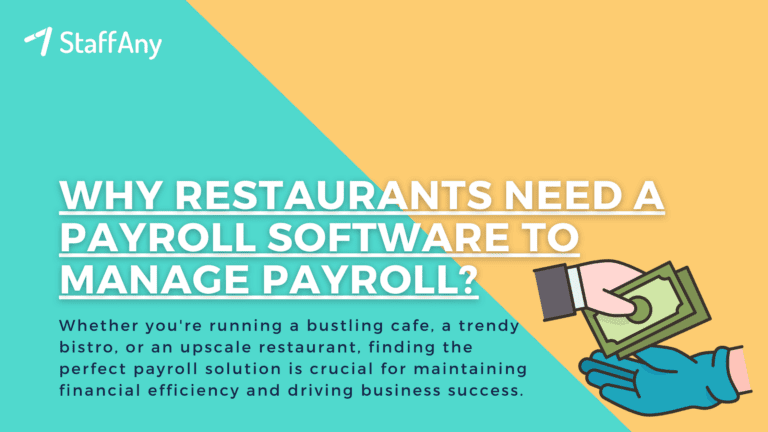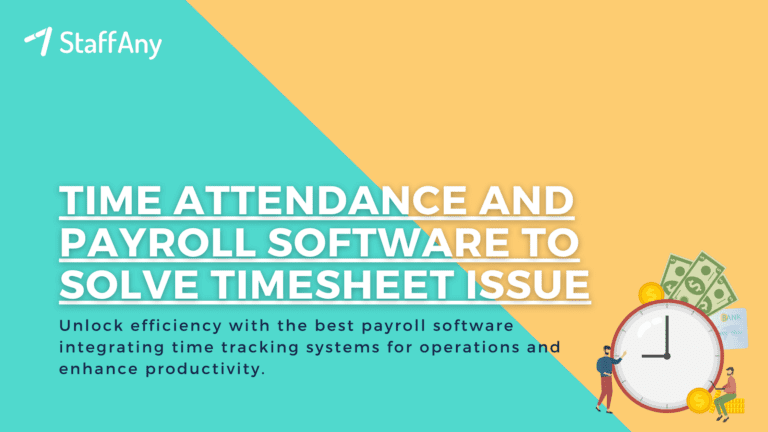In today’s fast-paced and demanding work environment, employees often face a myriad of personal and professional challenges that can impact their overall well-being and performance. Recognizing the importance of supporting their workforce, organisations have increasingly turned to Employee Assistance Programs (EAPs) as a proactive and comprehensive solution.
These programs, designed to provide confidential and professional support services, have gained significant recognition for their ability to enhance employee well-being, productivity, and overall organisational success.
What is an Employee Assistance Program?

An Employee Assistance Program, commonly known as EAP services, is a workplace-based initiative that offers a range of confidential services to employees facing personal or work-related challenges.
These challenges can include but are not limited to stress, substance abuse, mental health issues, financial problems, relationship difficulties, or any other concerns that may affect an employee’s ability to perform optimally.
Employee assistance programs are typically provided as part of an employee benefits package and are available to all employees, regardless of their position or level within the organisation.
By offering access to professional counsellors and support services, EAPs aim to assist employees in effectively managing their personal concerns, thus enabling them to thrive both personally and professionally.
Read more: 12 Employee Engagement Activities to Keep Them Motivated
What are the Benefits of Employee Assistance Programs?
Implementing an Employee Assistance Program brings forth a multitude of benefits for both employees and employers. Let’s explore some of the key advantages that these programs offer:
1. Improved Employee Well-being
One of the primary benefits of employee assistance programs is the emphasis on employee well-being. By providing confidential access to professional counsellors, EAPs create a safe space for employees to discuss and address their personal challenges.
Whether it’s coping with stress, managing mental health concerns, or navigating critical life issues, employees can find the necessary support to overcome these obstacles. Ultimately, this focus on well-being contributes to creating a supportive work environment and managing work life balance.
2. Increased Productivity
Employee assistance programs play a crucial role in increasing productivity within the workplace. When employees are facing personal challenges, it can significantly impact their ability to perform at their best.
However, by providing access to support services through EAPs, organisations can help employees address these challenges effectively. This, in turn, reduces absenteeism and presenteeism, as employees feel empowered to seek assistance and are better equipped to manage their personal issues, allowing them to stay focused and engaged in their work.
3. Enhanced Employee Engagement and Retention
Employee engagement and retention are vital for organisational success. When employees feel supported and valued by their employers, they are more likely to be engaged in their work and committed to their organisation.
Employee assistance programs demonstrate an employer’s commitment to employee well-being, fostering a positive organisational culture. By offering comprehensive support, organisations can increase job satisfaction, boost morale, and improve employee retention rates or reduce employee turnover
Read more: 10 Employee Retention Programs to Retain Your Top Talents
4. Reduction in Healthcare Costs
Employee assistance programs can also contribute to reducing healthcare costs for both employees and employers. By addressing mental health concerns, offering preventive programs, and promoting healthier lifestyles, these programs can potentially reduce the need for costly medical interventions.
Through early intervention and support, employees can proactively manage their health, leading to better overall well-being and reduced healthcare expenses.
5. Workplace Conflict Resolution
Workplace conflicts can be detrimental to productivity and employee morale. Employee assistance programs often incorporate services aimed at resolving conflicts and facilitating communication among team members.
By addressing interpersonal issues in a confidential and supportive manner, EAPs help maintain a harmonious work environment, reduce stress levels, and foster collaboration and teamwork.
6. Decreased Absenteeism
Employee assistance programs can contribute to a reduction in absenteeism rates within organisations. By addressing personal challenges and providing support, employees are better equipped to manage their personal issues, which can result in fewer unplanned absences.
EAPs help employees proactively address and resolve problems, leading to improved attendance and overall productivity.
7. Reduced Accidents and Fewer Workers’ Compensation Claims
Employee assistance programs can play a significant role in creating safer work environments. By addressing stress, mental health issues, and substance abuse problems, EAPs help employees cope with personal challenges that may otherwise affect their focus and concentration.
This, in turn, can lead to a decrease in workplace accidents and a reduction in workers’ compensation claims, resulting in cost savings for the organisation.
8. Increased Employee Retention
Employee retention is a critical factor for organisations aiming to maintain a skilled and engaged workforce. Employee assistance programs contribute to increased employee retention by providing a supportive and caring environment.
When employees feel valued and supported by their organisation, they are more likely to remain loyal and committed. EAPs demonstrate a commitment to employees’ well-being, which fosters a positive work culture and enhances employee satisfaction and retention rates.
Read more: Understanding the Importance of Human Resource Planning
Various Services of Employee Assistance Programs (EAPs)
Employee Assistance Programs (EAPs) offer a wide range of services to support employees in various aspects of their lives. The specific services provided can vary from one EAP to another, but here are some common examples of EAP services:
1. Counseling Services
EAPs typically offer confidential counseling services provided by licensed professionals. Employees can receive counseling for various issues, including stress, anxiety, depression, relationship problems, substance abuse, and grief.
2. Mental Health Services
EAPs provide resources and referrals for employees dealing with mental health challenges. This may include information on local mental health providers, crisis intervention, and suicide prevention.
3. Work-Life Balance Assistance
EAPs offer guidance and resources to help employees manage work-related stress and achieve a healthy work-life balance. This can include time management strategies and stress reduction techniques.
4. Legal Consultation
EAPs may provide legal consultations to help employees with legal concerns or questions related to issues such as divorce, child custody, landlord-tenant disputes, or estate planning.
5. Financial Counseling
EAPs often offer financial counseling to assist employees in managing their personal finances, reducing debt, and planning for their financial future.
Read more: The Importance of Workplace Safety in F&B
6. Child and Elder Care Services
Some EAPs provide assistance in finding and accessing childcare or eldercare services, including referrals to local providers and information on available resources.
7. Substance Abuse and Addiction Support
EAPs offer confidential assistance to employees dealing with illegal abuse or addiction issues. This may include referrals to harmfull abuse treatment programs and support groups.
8. Family and Relationship Counseling
EAPs provide counseling services to address family and relationship challenges, including marital issues, parenting concerns, and communication problems.
9. Stress Management Workshops
EAPs may organize workshops and training sessions on stress management, resilience building, and other topics related to employee well-being.
10. Career Development and Coaching
Some EAPs offer career development services, including career counseling, resume building, job search assistance, and interview coaching.
The specific services offered by an EAP can be customized to meet the needs and preferences of the organization and its employees. EAPs aim to provide comprehensive support to help employees address a wide range of personal and work-related challenges.
Read more: 8 Training Programs for Restaurant Staff Productivity
How Does the Employee Assistance Programs Work?
The functioning of an Employee Assistance Program (EAP) can differ based on the program’s specific plan documents. Typically, an EAP extends coverage to employees and may also include eligible household members, such as spouses, domestic partners, children, or dependents.
Employee assistance programs often maintain a network of partners who offer diverse services, including legal firms, childcare professionals, elder care specialists, nutritionists, fitness experts, and more.
Through EAP services, employees and their qualified household members gain access to a confidential resource they can contact during times of crises or when seeking guidance on managing various aspects of life.
The services provided by an employee assistance program may encompass on-call counsellors, referrals to local resources, and access to a virtual library of free resources and online self-help tools. Care counsellors are available 24/7, ensuring round-the-clock assistance, and all interactions are treated with utmost confidentiality.
It is important to note that an employee assistance program is distinct from health insurance. However, combining a health insurance plan with an EAP can prove beneficial for organisations and appreciated by employees.
Complement Your Employee Assistance Programs Initiatives with StaffAny!
Looking for a seamless solution to streamline your HR processes and enhance employee productivity? Check out StaffAny’s HR timesheet software!
StaffAny offers a comprehensive and user-friendly HR timesheet software that can complement your Employee Assistance Program (EAP) initiatives. With StaffAny, you can efficiently track and manage employee attendance, shifts, and schedules, ensuring accurate and transparent timesheet management.
By integrating StaffAny’s HR timesheet software with your employee assistance program, you can further optimise your workforce management. Effectively monitor employee attendance, track time-off requests, and effortlessly generate timesheet reports. This powerful combination of EAP and StaffAny’s HR timesheet software enables you to promote a healthy work-life balance, improve employee engagement, and boost overall organisational efficiency.
Discover the benefits of StaffAny‘s HR timesheet software for your organisation today!











